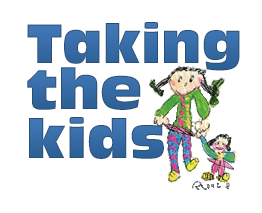Eileen Ogintz
Tribune Content Agency
Thanksgiving or Christmas?
In my Jewish family, Thanksgiving was the big holiday get-together, one the extended family traveled across the country to join, young kids and homemade pies in tow. For my husband’s Catholic family, it was Christmas with plenty of hijinks and gifts for the grandkids.
As my kids were growing up, first in Chicago and then Connecticut, we continued the Thanksgiving tradition with big multi-generational gatherings, even inviting foreigners we didn’t know through a United Nations program designed to give them a “real American” Thanksgiving and the immigrant family of a Bronx boy who had come to spend part of his summers with us. Such good times- and such happy memories, along with exhaustion, aggravation, squabbles and spending more than expected.

I’d give anything for a Thanksgiving like that now, aggravation and all. This pandemic holiday season, of course, has made us all rethink holiday planning and traditions. As COVID-19 cases spike alarmingly around the country, The Centers for Disease Control and Prevention says “staying home is the best way to protect yourself and others from COVID-19.” Nor should you host a big gathering. The larger the gathering, the bigger the risk, public health officials say.
“You have permission to skip Thanksgiving,” says Dr. Nicole Iovine, the University of Florida Health chief epidemiologist, who is leading COVID-19 efforts at the UF Hospitals. “The safest thing to do is to forgo family gatherings, except with those you live with.”
“We all have pandemic fatigue,” she acknowledged. “But this pandemic is not under control … it is a very serious threat.”
That this is also flu season only makes the situation worse, Dr. Iovine said, explaining it is certainly possible to have both flu and COVID-19 at the same time. It has never been more important to get a flu vaccine, and get your kids vaccinated too (even babies six months and older). Not only are the vaccines free with most medical insurance, including Medicare and Medicaid, but you get a discount if you get yours at a place like Walgreen’s or CVS.
Nor should you think kids won’t get “that sick” if they get flu or COVID. “It breaks my heart to see kids die of flu every year,” said Dr. Iovine.

Kids respond very differently from COVID-19, said Dr. Henry Bernstein, a professor of pediatrics at Zucker School of Medicine at Hofstra/Northwell on Long Island and a spokesman for the American Academy of Pediatrics, noting that a recent study suggests that as many as 10 percent of cases in the U.S. are in children. “We don’t know which children will do well, which ones will get very sick or even die,” he said. “This pandemic is less than a year old. The information is evolving with things changing almost daily.”
Nor should we expect a vaccine appropriate for children anytime soon. Dr. Bernstein explained that only very recently have vaccine trials begun to include children and even then, so far only those who are 12 and older. “It will take a lot longer to know if these vaccines are safe and effective for kids.”
He adds that there is little data on how COVID-19 effects pregnant women and newborns. More reason not to announce a pregnancy or show off the new baby at a big holiday gathering this year. “Certainly with young infants we don’t want to pass them around like party favors,” Dr Bernstein said, noting that babies under six months aren’t fully vaccinated and therefore also at risk for other infectious diseases they haven’t been vaccinated against yet.
It’s so scary, and, it adds significantly to holiday stress, especially when relatives aren’t on the same page, says Dr. Vaile Wright, a Chicago clinical psychologist and spokesman for the American Psychological Association.

It’s even worse for divorced families who disagree. “What does and doesn’t make sense may vary in different parts of the country, “said Dr. David Fassler, a Vermont child and adolescent psychiatrist and professor at the University of Vermont’s medical school. Consult with the child’s pediatrician or family physician,” he suggested and “work together to come up with a plan that’s realistic and consistent with current guidelines and recommendations. That may involve changes to the usual schedule.”
This at the time when kids already are under additional stress because their routines and lives have been so disrupted. As for the mother or mother-in-law who is trying to guilt you into coming, Dr. Wright suggests it might help to write down what you want to say before the inevitable phone conversation, something like, “I know you are disappointed, we are too, but we have to do what’s right for our family…”
Suggest a Zoom call when everyone is sitting at the table in different houses so that you can all feel connected. “Don’t second guess yourself, and keep politics out of it,” she advises.
Who knows, maybe your mother-in-law will be secretly relieved she doesn’t have to cook for so many people this year. Maybe the kids will be relieved they do not have to pretend to like annoying cousins. Maybe your spouse is relieved not to spend time with the brother-in-law he cannot stand.
Instead, the experts suggest, see this holiday season as a chance to start a new tradition.
“Remember it isn’t always going to be like this,” Dr. Wright says.
Adds Dr. Iovine, “Keeping Thanksgiving small—or not having Thanksgiving—is a loving thing to do for your family.”
Who likes turkey that much, anyway?
©2020 Eileen Ogintz. Distributed by Tribune Content Agency, LLC.

